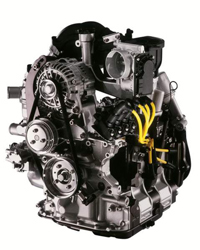C3109 Engine Code Repair
Meaning of C3109 engine trouble code is a kind of chassis trouble code and C3109 if your catalytic convertor fails completely, you eventually won't be able to keep the car running. Your gas mileage will also be terrible, so you should try and fix it as soon as you can. Unfortunately, the average replacement cost is around $2,140 and you can't do it yourself unless you're an experienced mechanic.
C3109 Fault Symptoms :
- Check engine light comes on
- Engine stalling or misfiring
- Engine performance issues
- Car not starting
If one of these reasons for C3109 code is occuring now you should check C3109 repair processes.
Now don't ask yourself; What should you do with C3109 code ?
The solution is here :
C3109 Possible Solution:

Excessive air inflow can be caused by a vacuum leak, a dirty sensor or, an exhaust gas recirculation valve not closing properly. If the problem is not enough fuel, the culprit may be dirty injectors or fuel filters, a weak fuel pump or a leaky fuel pressure regulator. The lean fuel mix error may be accompanied by rough idling, engine misfires, hesitation during acceleration and overall poor engine performance.
C3109 Code Meaning :
C
OBD-II Diagnostic Chassis (C) Trouble Code For Engine
3
Ignition System Or Misfire
1
Ambient Air Temperature Sensor Circuit Low
0
Crankshaft Position Sensor A Circuit Malfunction
9
Clutch Position Sensor Circuit Malfunction
Is the fuel pump sometimes not priming when you turn the key to ON(II)? Start by measuring the fuel pressure and checking whether you have bright white-bluish spark at all four plugs. The mechanical timing is also something that you should check, as we mentioned above.
C3109 OBD-II Diagnostic Chassis (C) Trouble Code DescriptionC3109 engine trouble code is about Clutch Position Sensor Circuit Malfunction.Main reason For C3109 CodeThe reason of C3109 OBD-II Engine Trouble Code is Ambient Air Temperature Sensor Circuit Low. |
C3109 the main thing to check is to verify the operation of the VCT solenoid. You're looking for a sticking or stuck VCt solenoid valve caused by contamination. Refer to vehicle specific repair manual to perform component tests for the VCT unit.
